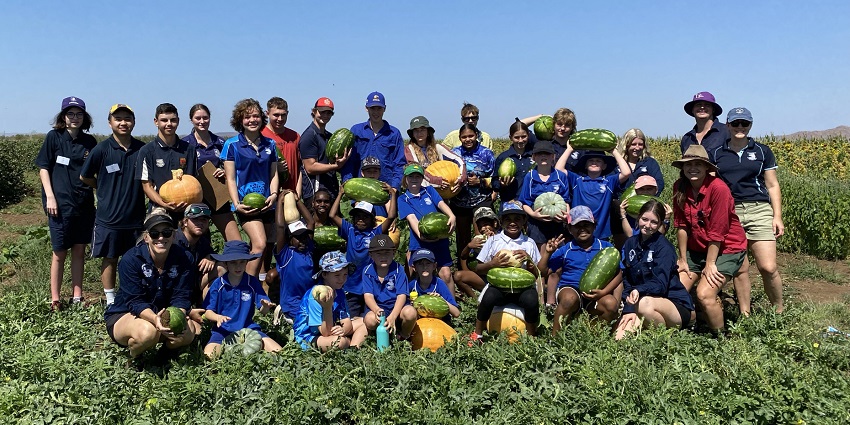
A program providing meaningful work experience and an alternative pathway to a career in agriculture has wrapped up for this year’s group of East Kimberley College students.
The Department of Primary Industries and Regional Development (DPIRD) has hosted the year 11 and 12 students at its Frank Wise Institute of Tropical Agriculture in Kununurra since April.
The 20 students, part of the Kimberley Education for Life (KEFL) program, have been provided with support and hands-on agricultural training opportunities while still at school.
DPIRD technical officer Holly Cattermole said the students who had expressed an interest in agriculture completed the structured 20-week program.
“I had worked with KEFL students in the past and began to feel really passionate about broadening our interaction with them,” Ms Cattermole said.
“We worked on developing a more meaningful work curriculum for them, introducing real agricultural program components to give them a greater understanding of agriculture and the important role it plays in the community.”
At the beginning of the year Ms Cattermole worked with Research Facility Unit team leader Mark Warmington who gathered the seeds and planted 12 crops commonly grown in Kununurra on a plot at the department’s research site.
The crops included commercial grits maize, sweetcorn, borlotti beans, sunflower, quinoa, chia, plantago, mungbean, safflower, chickpea, watermelon and three types of pumpkin.
“The students came to the facility every Friday and were responsible for maintaining the crops and gathering data, including measuring heights, population counts, flowering, insect damage and growth,” Ms Cattermole said.
“They learnt the basics of the specific crops irrigation and horticulture, pest and disease management, biosecurity, soil health and types of fertilisation and breeding in plants.
“We also organised for DPIRD researchers and specialists to talk to the students about the crops and why they are important to agriculture.”
The field-based learning was expanded in the classroom, with the students taught to interpret data and measurements as part of their maths program and conduct presentations for English.
“This part of the program gave them a greater understanding of how maths is used in everyday life in research and development,” she said.
“The students have been very enthusiastic and we have had great participation and positive feedback.”
East Kimberley College High School teacher and KEFL coordinator Claire Piesse said the training experiences at the Frank Wise Institute had been practical, engaging and rewarding for the students.
“Our students have loved the opportunity to gain new skills and see the vast variety of employment opportunities available in the industry locally,” she said.
Caption: East Kimberley College's KEFL students talk to primary students about the agricultural program completed at DPIRD’s Frank Wise Institute under the guidance of technical officer Holly Cattermole (front far right).
Media contact:
Megan Broad/Donna Coleman, media liaison, +61 (0)8 9368 3937


